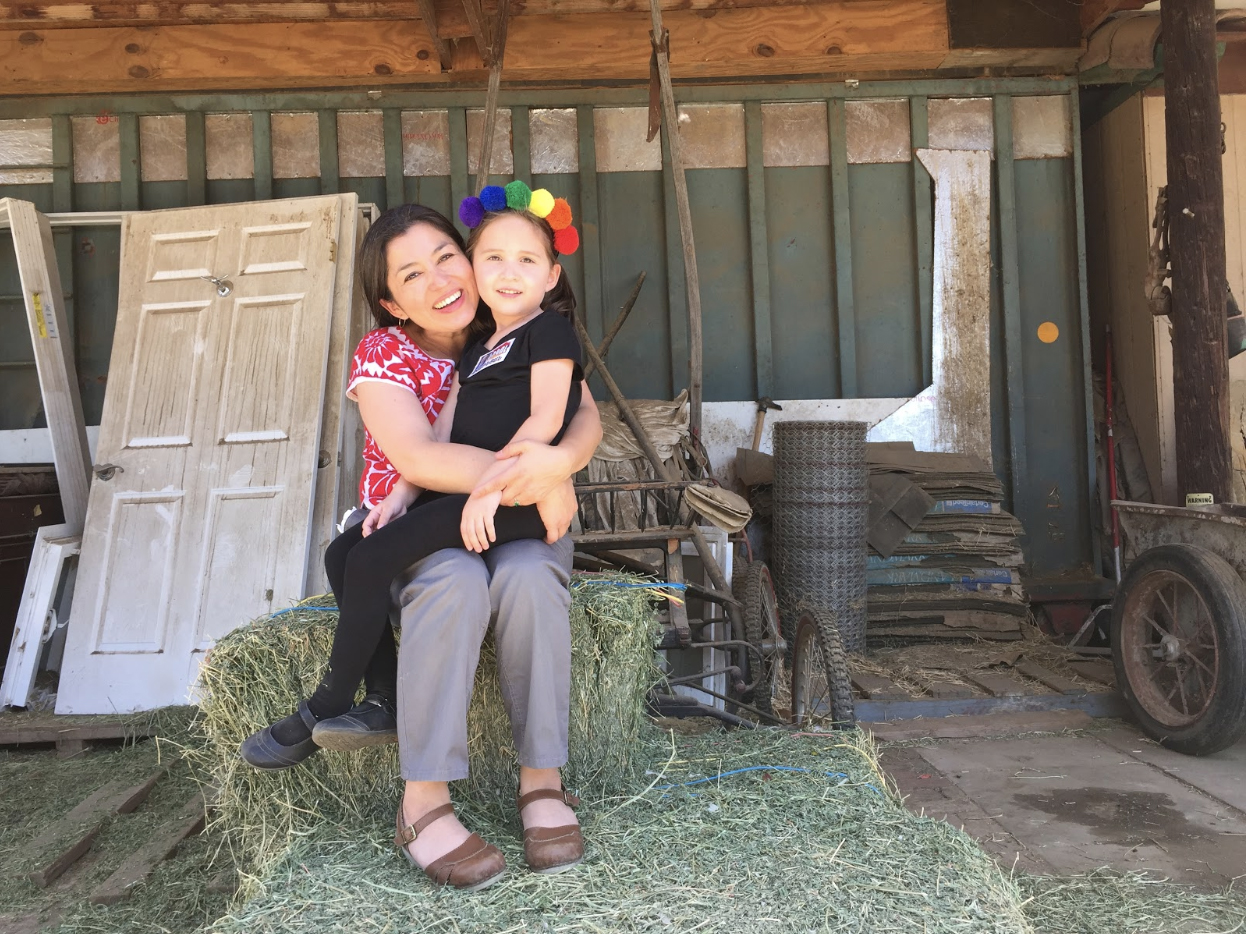‘You’re confusing the poor girl’: LA Times reporter chastised for speaking Spanish to her daughter

Esmeralda Bermudez was at the park for a family birthday party in late April when it happened.
She called out to her daughter, 5, in Spanish. Then a woman, a stranger, approached her, demanding she switch to English.
“You’re confusing the poor girl,” the woman told her.
In an instant, Bermudez said, she felt an avalanche of emotions: shock, anger, sadness.
“I also felt a sense of shame because she shrank me down in that moment,” Bermudez said. “She felt very entitled and very much within her right to tell me what to do.”
When she returned to the party, Bermudez stayed quiet. She didn’t want to cause a scene.
But later, after speaking to her husband, she tweeted about it.
Bermudez’s tweet went viral — more than 77,000 retweets, 400,000 likes and over 2,500 comments within hours. Eventually, she shared her story with the LA Times, where she is a reporter and writes about the lives of Latinos.
A lady at the park just scolded me for speaking Spanish to my 5 yr old. You’re confusing the poor girl, she said. No need to worry, I told her. My girl is fully fluent in Spanish, English and Armenian. She’s also learning French. How many languages do you speak?
— Esmeralda Bermudez 🦅 (@LATbermudez) April 29, 2018
High-profile incidents featuring Latinos being harassed for speaking Spanish in public have seemingly been on the rise over the past few years, leaving many to question whether the hateful incidents have increased in frequency or whether people have become more aware and intolerant of the behavior.
The common theme — “Speak English, this is America” — echoes remarks President Trump has made since his emergence as a presidential candidate in 2015. That year, during the GOP primary contest, Trump mocked bilingual presidential candidate Jeb Bush for speaking “Mexican.”
According to an AP-NORC poll, about half of all Americans believe race relations in the United States have worsened in the past year.
In May 2017, Hector Torres was verbally attacked for speaking Spanish to his mother on the phone at the Reno, Nevada airport. Torres recorded the incident and posted it on social media.
A year later, a video of attorney Aaron Schlossberg screaming at workers speaking Spanish to customers in a New York City deli went viral. He threatened to call federal immigration agents, saying they must not be legal residents of the U.S. since they were speaking Spanish.
Schlossberg who was mocked in the media, online and at a massive mariachi concert outside his Manhattan apartment, has since apologized.
Though some elected officials have tried to solidify English as the national tongue, none have succeeded. The United States does not have an official language.
But 31 states do. States including some of those with the largest Spanish-speaking populations, like California and Florida, have adopted English as their official language.
According to the U.S. Census Bureau, at least 350 languages are spoken in homes across the country. A record 37.6 million people reported speaking Spanish at home in 2013, according to the Pew Research Center, making it the second most common language in the U.S.
That number has only increased since.
Pew Research Center reported in 2015 that 60 percent of Hispanic adults are bilingual.
Bermudez said her daughter speaks three languages — Spanish, Armenian, and English. She is also learning to speak French.
“She’s just as American as everybody else, the only difference is she’s speaking three to four languages,” Bermudez said.
Raising a multilingual child has its challenges, Bermudez said, but she and her husband have worked out a system: Bermudez speaks to her daughter only in Spanish, while her husband speaks to her in Armenian. At school, the little girl learns English. She’s also enrolled in French lessons.
Bermudez said her family used to receive a lot of stares for speaking multiple languages. Part of her reasons for sharing her story publicly was to address the curiosity people had.
“Being bilingual to me is woven into every single aspect of who I am,” said Bermudez. “It’s like my DNA.”
When Bermudez and her family arrived to the United States from El Salvador, she said, it often fell to her to play translator — for job interviews, doctors appointments and more — between her family who could speak only Spanish and others who could speak only English.
“I have never in my entire life felt ashamed of speaking Spanish,” said Bermudez. “I carry it like a child in my arms and I never put it down.”
So when the woman from the park confronted her, Bermudez said, she couldn’t hold it inside. She knew she had to share her story.
But she did not expect such an overwhelmingly positive reaction.
“The more you bring it into the light I feel the more you kind of overshadow these negative, dark moments,” Bermudez explained. “I felt like I was speaking up not just on my behalf, but on behalf of so many other people who maybe can’t speak for themselves.”
Email: latinoreporterofficial@gmail.com
Twitter: @karinamariegonz
Pingback: Reynolds students celebrate culture through student newsrooms and fellowships at national conferences - The Reynolds School of Journalism